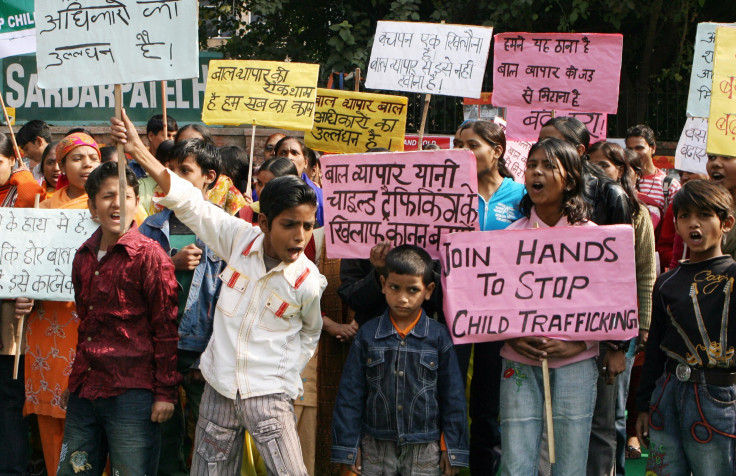Associated Press Defends Use Of ‘Child Prostitute’ Following Backlash From Human Rights Advocates

Can a child ever be a “prostitute”? Critics say the term, widely used by news organizations, implies consent and criminality on the part of victims who are sold for sex, and they want to see media outlets use more circumstance-specific words. They’ve set their sights on the Associated Press, one of the most influential news agencies in the world.
But the AP on Thursday defended its occasional use of the phrases “child prostitute” and “child prostitution” after a human rights group called out the news organization for using what it says are harmful terms that mislead the public about the realities of child sexual exploitation.
Paul Colford, an AP spokesman, said the AP has used the terms only sparingly and within the context of criminal proceedings or young people being unwillingly forced into prostitution. He said when the terms are used, the AP makes the involuntary nature of the victims’ situations clear. He also said searches of the AP database revealed very few instances of the terms.
“I’m unsure why the Associated Press is being singled out,” Colford said of the backlash in an email to International Business Times.
A petition launched by the Washington-based organization Human Rights Project for Girls (Rights4Girls) is asking the AP to lead the media in curbing the use of the phrases in newsrooms. Many media outlets look to the AP Style Guide as an authority on clear and accurate newswriting.
The petition was authored by Withelma “T” Ortiz Walker Pettigrew, an advocate for child sex-abuse victims who has testified before a U.S. congressional committee about her experiences of being forced into sex trafficking as a child.
“I have dedicated my life to ending child sexual exploitation and ensuring that victims and survivors are treated with honor and respect. It is important that the Associated Press take leadership in ending the use of these terms, because how we are named is how we are treated. If respectable media outlets continue to use these terms, children who are bought and sold will continue to be treated as criminals, instead of as victims and survivors of child rape.”
Pettigrew’s effort was bolstered this week when the petition was shared on Twitter by a number of celebrities, including Mia Farrow, Russell Simmons, Margaret Cho, Chuck D and Sean “Diddy” Combs.
Pettigrew did not immediately respond to a request for comment. Her petition on Change.org has been signed by more than 27,000 people.
Colford said a search of the AP database has turned up only two instances of the term “child prostitute” in the last two years, and one instance of “child prostitution,” and those examples offered context. For instance, he cited a July story about six British men convicted in a sex ring case, which included child prostitution as one of the charges.
Rights4Girls says the phrases are much more widespread, not just in AP copy but throughout the media, both online and in print. Along with the Raben Group, it compiled statistics showing more than 5,000 instances in the past five years of news outlets using the phrase “child prostitute,” “child prostitution,” “underage prostitution” or other variations. The groups found that the Associated Press online used “child prostitute” 22 times and “child prostitution” 52 times in the past five years.
In its report, the Raben Group said journalistic language should better represent the factual circumstances of victims. It suggested a number of alternative phrases, including “sex-trafficked child” and “child sex trafficking victim.”
Read the full report here.
Christopher Zara covers media and culture. News tips? Email me. Follow me on Twitter @christopherzara.
© Copyright IBTimes 2024. All rights reserved.






















